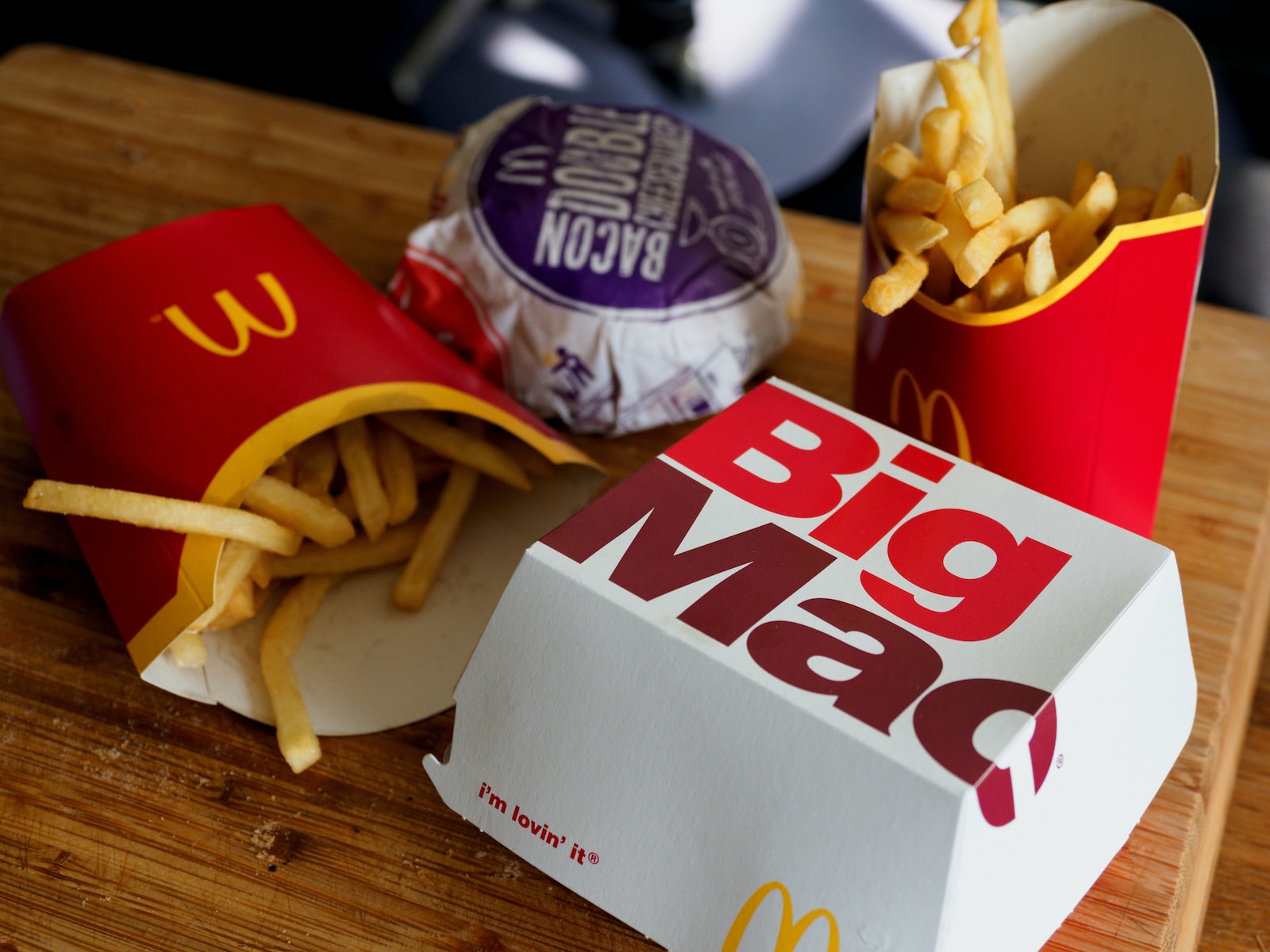
Photo by Brett Jordan on Unsplash
Rising Fast-Food Prices Spark Nationwide Concern
January 5, 2024
It was recently brought to public attention that a McDonald’s outlet in Darien, Connecticut, had priced its Big Mac combo meal at an astonishing $18. The price surge, including $19 for a Quarter Pounder meal and $17 for two cheeseburgers, ignited a nationwide discussion regarding the viability of such inflated prices in the fast-food industry.
However, this incident is not confined to one McDonald’s branch. The nation has witnessed a widespread uptick in fast-food prices, primarily attributed to the escalating operational costs, especially labor. California has become a focal point in this scenario due to the introduction of a $20 minimum wage for fast-food workers effective on April 1, 2024, a significant upswing from the previous $16 rate.
To accommodate this change, corporations like Chipotle and McDonald’s have preemptively heightened their prices. The ramifications of this wage increment, however, extend beyond increased prices. Over 1,200 Pizza Hut drivers in California are now facing unemployment, with businesses favoring delivery services like DoorDash and Uber Eats to reduce costs.
The new wage law, initially welcomed by many employees, has yielded mixed outcomes. While it has proved beneficial for some, it has also led to job losses for others, culminating in a myriad of sentiments among affected workers.
As fast-food prices continue to rise and businesses grapple with escalating operational costs, the debate over striking an equilibrium between fair wages and sustainable business models remains.
The financial strain is further exacerbated due to the prevailing economic conditions. The State of Personal Finance in America Q2 2023 survey completed by Ramsey Solutions has revealed some alarming statistics. As basic necessities are becoming more expensive, Americans are reducing their expenditure on nonessentials such as dining out (31%) and entertainment (30%). Particularly, renters under 40 years of age are grappling with rent payments, with 64% facing challenges, an increase of 18.5% over the past three years. Moreover, more than half of the population (54%) is apprehensive about not having sufficient funds for personal expenses, a concern that is more pronounced among women (57%) and Gen Z (62%).
This financial anxiety is adversely affecting the mental health of Americans as well. Approximately 49% of Americans have reported experiencing significant stress due to financial worries, with a number of individuals suffering anxiety attacks. Inflation remains a paramount concern, with 59% indicating apprehension about affording the rising prices. The ongoing crisis in the fast-food industry only compounds these existing issues.
Recent News
New Starbucks Artist Collaboration Merch Announced
Inspired by personal experiences and cultural heritage, artist Monyee Chau brings forth a collection under the Starbucks Artist Collaboration Series set to debut this summer.
FDA Says Eating Yogurt May Help With One Common Disease
The Food and Drug Administration claims that yogurt could help with one common disease, but there’s a catch as to not mislead consumers.
Climeworks Unveils ‘World’s Largest’ Carbon Capture Plant
Amidst the global climate crisis, a groundbreaking solution emerges: the inauguration of the world’s largest carbon capture plant, “Mammoth,” in Iceland. Developed by Climeworks, this plant marks a significant stride in the pursuit of curbing planet-heating emissions.
Palmer Candy Company Recalls 29 Products for Possible Salmonella Contamination
The Food and Drug Administration (FDA) has recalled 29 of Palmer Candy Company’s white-coated confectionary items because of the potential for salmonella contamination.

